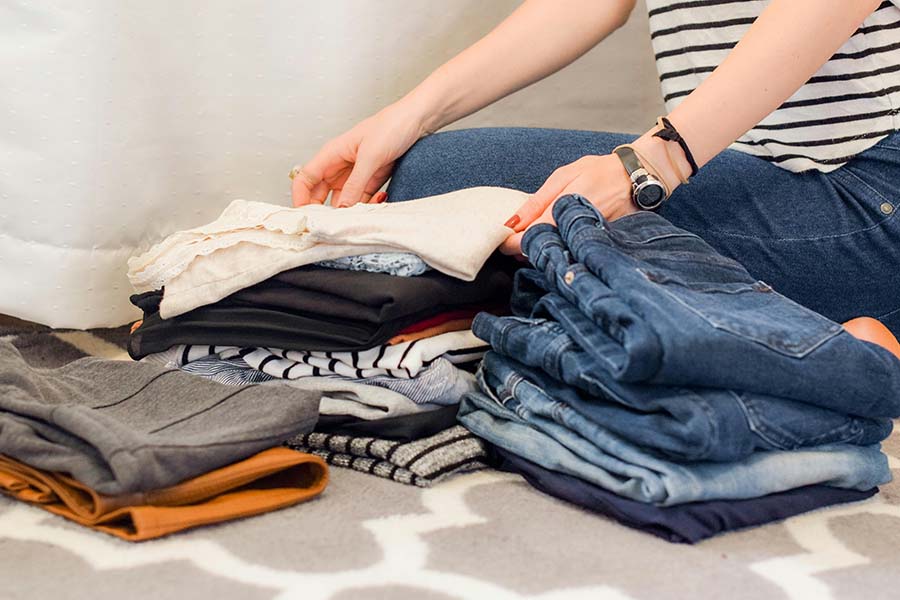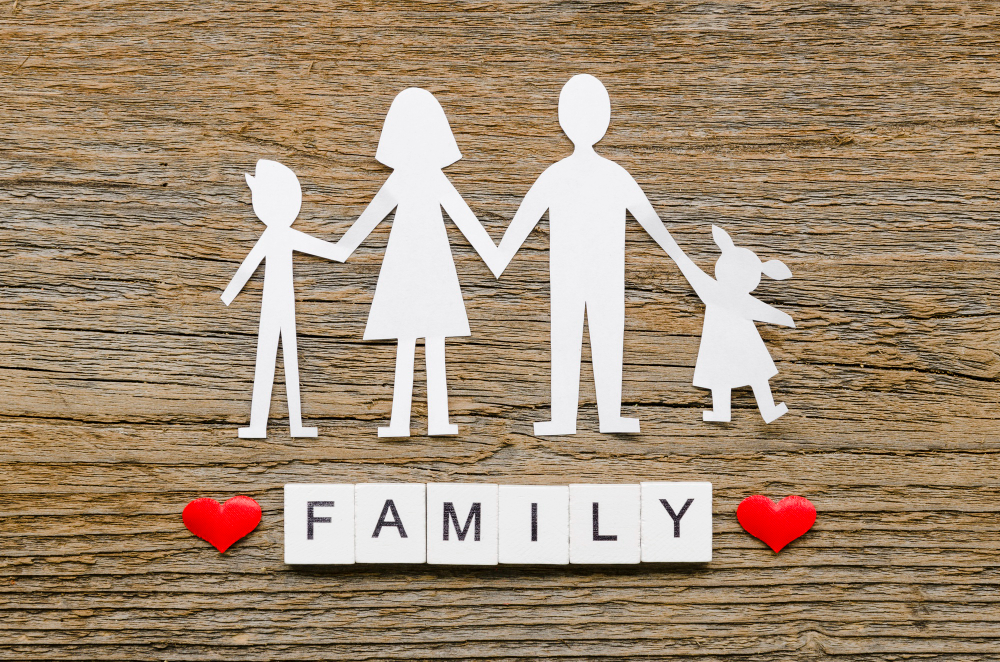Unlock Ultimate Joy: Minimalist Secrets to Declutter Your Life

In a world that constantly bombards us with advertisements and the pressure to accumulate more, finding happiness in minimalism can seem like a radical idea. However, many people are discovering that decluttering their lives can lead to more profound satisfaction and joy. This guide will delve into the principles and benefits of minimalism, offering practical steps to help you declutter your life.
What is Minimalism?
Minimalism is a lifestyle choice that emphasises living with less. It involves removing excess possessions and distractions to make room for what truly matters. By simplifying your surroundings, you can enhance your mental well-being and overall quality of life.
Minimalism goes beyond owning fewer items; it’s about making intentional choices that reflect your values. It encourages you to assess what truly matters and eliminate what doesn’t. This method can lead to a more meaningful and fulfilling life.
Adopting a minimalist lifestyle can foster a sense of freedom. By reducing clutter, you create more physical and mental space, allowing for greater creativity and productivity. This newfound freedom can lead to a more balanced and peaceful existence.
Key Principles of Minimalism
Intentionality: Every item you own should serve a purpose or bring you joy. This principle encourages you to be deliberate about what you keep in your life.
Mindfulness: Being mindful of your consumption habits and their impact on your life and the environment. This principle promotes sustainable living and conscious consumerism.
Simplicity: Aiming for simplicity in all areas of life, from your home to your schedule, can reduce stress and free up more time for what truly matters.
Contentment: Finding satisfaction with what you have rather than constantly seeking more. This principle helps you appreciate the present moment and reduces the desire for unnecessary possessions.
Benefits of Minimalism
Embracing minimalism can bring numerous benefits, some of which include:
Reduced Stress: A clutter-free environment can lead to less stress and anxiety. When your space is organised, finding things and maintaining a sense of calm is easier.
Increased Focus: You can concentrate better on your tasks and goals with fewer distractions. Minimalism helps you prioritise what’s important and eliminate what’s not.
Financial Freedom: Spending less on unnecessary items can help you save money and reduce debt. This financial freedom provides more opportunities for experiences and personal growth.
Improved Relationships: Redirecting attention away from material possessions allows for more time and energy to be invested in relationships. Nurturing connections with loved ones can pave the way for a more fulfilling and joyful life.
Environmental Impact: Consuming fewer resources is better for the planet. Minimalism promotes sustainable living and reduces your ecological footprint.
Steps to Declutter Your Life
Assess Your Current Situation
Begin by taking a close look at your current living situation. Identify cluttered areas and list the items you no longer use or need. This will give you a clear starting point.
Taking inventory of your possessions can be an eye-opening experience. It lets you see how much you’ve accumulated and identify what’s essential. This assessment can help you understand your habits and make more mindful decisions.
Once you understand your current situation, you can set realistic goals for your decluttering journey. This initial step is crucial for creating a plan that works for you and keeps you motivated.
Set Clear Goals
Having clear goals can keep you motivated throughout the decluttering process. Whether you want to simplify your wardrobe, organise your kitchen, or reduce digital clutter, setting specific objectives will help you stay focused.
When establishing goals, ensure they are specific and tied to a clear purpose. For instance, ‘I aim to streamline my wardrobe for time-saving and reduced decision fatigue.’ This clarity maintains motivation. Break down goals into smaller, manageable tasks to ease overwhelm and celebrate achievements along the way.
Start Small
Decluttering can be overwhelming if tackled all at once. Start with small, manageable areas, such as a single drawer or shelf, and gradually work your way up to larger spaces.
Starting small helps build momentum and makes the process feel more manageable. It’s easier to stay motivated when seeing immediate progress in smaller areas.
As you gain confidence and see the benefits of decluttering, you’ll be more prepared to tackle larger projects. This gradual approach ensures long-term success and prevents burnout.
Use the Four-Box Method
When decluttering a space, use the four-box method to sort items into the following categories:
Keep: Items that are useful or bring joy.
Donate: Items in good condition that you no longer need but can benefit someone else.
Sell: Valuable items that you can sell to make some extra money.
Trash: Include items that are either broken or no longer functional. This strategy facilitates swift decision-making and maintains organisation throughout the process. It’s a pragmatic method for decluttering your belongings.
By categorising items, you can easily see what you have and make informed decisions about what to keep and let go. This method simplifies the decluttering process and ensures that everything is noticed.
Adopt a One-In-One-Out Rule
To maintain a clutter-free environment, adopt the one-in-one-out rule. For every new item you bring into your home, remove an existing one. This will prevent the accumulation of unnecessary belongings.
This rule helps you stay mindful of your consumption habits and ensures your space remains clutter-free. It’s a simple yet effective way to maintain balance.
By practising the one-in-one-out rule, you can cultivate a more intentional and mindful approach to acquiring new items. This habit promotes long-term minimalism and prevents relapse into clutter.
Simplify Your Wardrobe
Opting for a minimalist wardrobe can streamline your routine and minimise decision overload. Explore the concept of a capsule wardrobe, comprising versatile pieces that can be easily combined. Dispose of or donate garments not worn in the past year.
A capsule wardrobe streamlines your daily routine, retaining only beloved, regularly worn items, thereby saving time and lowering stress levels. Prioritising quality over quantity aids in curating a wardrobe that mirrors your style and values, while promoting sustainability and minimising waste in fashion.
Declutter Digitally
Digital clutter can be just as overwhelming as physical clutter. Organise your digital files, delete unnecessary emails, and unsubscribe from newsletters you no longer read. Use cloud storage to keep important documents organised and easily accessible.
Managing digital clutter can improve your productivity and reduce stress. An organised digital space allows you to find what you need quickly and efficiently.
Regularly reviewing and decluttering your digital space ensures it remains organised and functional. This habit can enhance your overall digital experience and prevent you from becoming overwhelmed.
Evaluate Your Spending Habits
Examine your spending habits closely, pinpointing areas for reduction. Develop a budget that resonates with your minimalist principles, emphasising experiences over material acquisitions.
By evaluating your spending habits, you can identify unnecessary expenses and make more intentional choices. This financial mindfulness can lead to more significant savings and financial freedom.
Giving precedence to experiences over material possessions can pave the path to a more enriching and joyful existence. Investing in experiences cultivates enduring memories and brings profound meaning to your life.
Embrace Quality Over Quantity
Focus on purchasing high-quality items that last longer rather than opt for cheaper, disposable alternatives. This will not only reduce clutter but also promote sustainability.
Investing in quality items ensures that you have durable and reliable possessions. This approach reduces waste and promotes a more sustainable lifestyle.
By embracing quality over quantity, you can take a more intentional and mindful approach to consumption. This principle aligns with minimalism’s core values and enhances overall well-being.
Practice Gratitude
Cultivate an attitude of gratitude by regularly reflecting on the things you already have. This can shift your focus from what’s missing in your life to what’s truly important, enhancing your happiness.
Practising gratitude helps you appreciate what you have and reduces the desire for unnecessary possessions. This mindset can lead to greater contentment and joy.
Regularly reflecting on your blessings can enhance your overall well-being and promote a more positive outlook on life. Gratitude is a powerful tool for cultivating happiness and fulfilment.
Minimalism Beyond Physical Possessions
Minimalism isn’t just about reducing physical clutter but also simplifying other aspects of your life.
Simplify Your Schedule
Evaluate your commitments and prioritise the activities that bring you joy and fulfilment. Learn to say no to tasks that don’t align with your values or goals. Create a balanced schedule that allows for downtime and self-care.
By simplifying your schedule, you can create more time for what truly matters. This approach reduces stress and promotes a more balanced lifestyle.
Learning to say no is a crucial skill for maintaining a minimalist lifestyle. You can create a schedule that supports your well-being and happiness by focusing on what’s essential.
Focus on Relationships
Invest time and energy into building meaningful relationships. Spend quality time with loved ones and engage in activities that foster connection. Minimising distractions can help you be more present and attentive in your interactions.
Strong relationships are a vital component of a fulfilling life. By prioritising connections with loved ones, you can create a support system that enriches your life.
Being present and attentive in your interactions can lead to deeper and more meaningful relationships. This focus on connection aligns with minimalism’s core values and enhances your overall well-being.
Prioritise Self-Care
Incorporate self-care practices into your daily routine. Whether meditation, exercise, or reading, make time for activities that nurture your mind, body, and soul.
Self-care is essential for maintaining balance and well-being. By prioritising self-care, you can create a more fulfilling and joyful life.
Regular self-care practices can reduce stress and enhance your overall quality of life. This focus on well-being is a crucial aspect of living a minimalist lifestyle.
Conclusion
Finding happiness in minimalism is a journey that involves intentional choices and mindful living. By decluttering your life, you can create a space that reflects your values and supports your well-being. Remember that minimalism is not about deprivation but making room for what truly matters. Start small, stay committed, and embrace the joy of living with less.
If you found this post engaging, don’t forget to explore our additional blogs:
- Unlock a Balanced Life: The Shocking Benefits of Healthy Eating!
- Discover How Mindful Eating Can Transform Your Health Today!
- Zoom-Ready Fashion: Must-Have Styles for Virtual Meetings!
- Jet-Setter Must-Haves: Fashionable Travel Essentials!
- Unlock Wealth Secrets: Rich Dad Poor Dad Reveals All!
- Unleash Your Earning Potential: Mastering the Gig Economy Game!
- Unlock Your Peak Performance: Fast This Way with Dave Asprey!
- Revolutionise Your Kitchen: Master Zero-Waste Cooking Magic!
- Wild Adventures and Hilarious Mishaps: Bill Bryson’s Appalachian Trail Tale!
- Mastering AutoML: Perks, Uses & Hurdles Uncovered
Sign up for updates on this blog and our latest posts if you enjoyed reading this one.
Help your friends and colleagues stay informed about the newest insights on business, marketing, finance, lifestyle, and society by sharing our blog content through Facebook, Twitter, Pinterest, LinkedIn, email, or WhatsApp links below. We can create a knowledge-sharing community and empower one another to accomplish and experience our objectives.
FAQ: Finding Happiness in Minimalism
What is minimalism, and how can it improve my life?
Minimalism is a lifestyle choice that emphasises living with fewer possessions and distractions, focusing instead on what truly matters. By simplifying your surroundings, you can improve your mental well-being and overall quality of life. It promotes intentionality, mindfulness, simplicity, and contentment, reducing stress, increasing focus, financial freedom, improved relationships, and a positive environmental impact.
What are the key principles of minimalism?
The fundamental principles of minimalism include:
Intentionality: Keeping items that serve a purpose or bring joy.
Mindfulness: Being aware of your consumption habits and their impact.
Simplicity: Striving for simplicity in all aspects of life to reduce stress.
Contentment: Finding satisfaction with what you have and appreciating the present moment.
How can I start decluttering my life?
You can start decluttering by following these steps:
Assess Your Current Situation: Identify cluttered areas and list items to remove.
Set Clear Goals: Define specific objectives for your decluttering process.
Start Small: Begin with manageable areas and gradually move to larger spaces.
Use the Four-Box Method: Sort items into keep, donate, sell, and trash categories.
Adopt a One-In-One-Out Rule: For every new item, remove an existing one.
How does minimalism extend beyond physical possessions?
Minimalism also involves simplifying other aspects of life, such as:
Simplifying Your Schedule: Prioritising activities that bring joy and fulfilment.
Focusing on Relationships: Investing time in meaningful connections with loved ones.
Prioritising Self-Care: Incorporating activities that nurture your mind, body, and soul.
By adopting these practices, you can create a balanced and fulfilling lifestyle that aligns with minimalism’s core values.
Credits
Featured photo by Sarah Brown on Unsplash.








